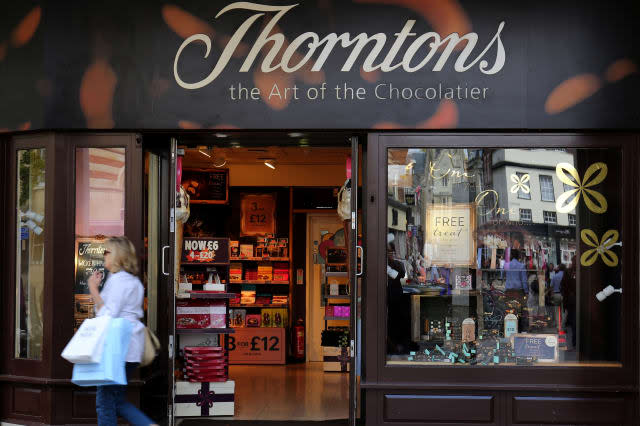10 great British firms sold to overseas companies

Some British firms are part of our cultural identity. When Norman and Stanley Thornton opened a sweet shop in Sheffield in 1911, they laid the foundations of a brand that would find a home in high streets across the country, furnishing us with firm favourites like Special Toffee and Viennese truffles for generations.
So as Thorntons looks set to be sold to an Italian firm, there are plenty of people lamenting the loss of another great British name to an overseas giant.
Brands sold
Over the years, some enormous household names have been lost to the UK. We reveal ten of the most famous.
The current government is ideologically in favour of the global market, so they are not concerned by the sale of British business. A spokesman for the Department for Business, Innovation and Skills, said earlier this month that: "The UK's traditional openness to investment has served us well as the second largest host country for foreign direct Investment stock. Mergers and acquisitions can be an important mechanism for enhancing the governance, productivity and innovative capacity of UK companies. In all cases, the Government's focus is on ensuring the best outcome for the long-term success of the UK economy."
As far as the government is concerned, the sale of businesses like Cadbury and Thorntons means the brand itself will continue to employ people in the UK, and can benefit from new investment. Some estimates claim that overseas investment is responsible for half the manufacturing jobs in the country.
Meanwhile, being part of a larger organisation can be the catalyst a British business needs for global growth, which will generate jobs around the world.
The risks
Unfortunately it doesn't always work in the UK's favour. Earlier this month a report by think tank Civitas warned that when a company is bought up, often the UK arm is left dealing with low-level aspects of production, such as assembly, while the skilled jobs and expertise go overseas.
Decision-making is no longer influenced to the same extent by what it means for British workers, so jobs may be less secure, and facilities liable to close. One of the most striking examples of this was when Cadbury was bought by Kraft in the US in 2010. Kraft promised it wouldn't close any British factories, but shut its first one within weeks of the takeover.
What should be done?
Civitas was so concerned that it wanted to see more protection against overseas takeovers, either through taxation or by direct government interference. Vince Cable, the former Business Secretary, has also argued: "There is an ambiguous area which is called the public interest test, and I think we should certainly have in reserve a power for ministers to intervene where there is a genuine national interest, particularly around science and where we have a big capability in research and development."
Other experts argue, however, that more protectionism by the UK government would mean UK companies are barred from overseas investment that has seen the likes of Tesco, Vodafone and WPP takeover dozens of companies over the years.
But what do you think? Do mergers and takeovers like this worry you? Would you like to see Thorntons stay in British hands? Let us know in the comments.
Company news on AOL Money
You could soon get more junk mail thanks to Royal Mail
Aldi named best supermarket by Which?
Who are the UK's best bosses?





